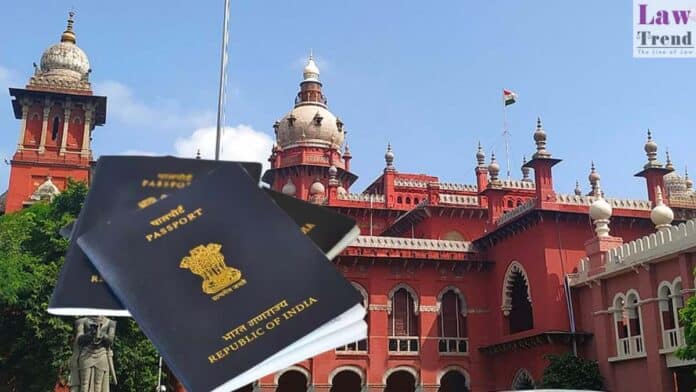The Madras High Court has ruled that a married woman is not required to obtain her husband’s consent or signature to apply for a passport. Justice N. Anand Venkatesh, presiding over a writ petition, issued a direction to the Regional Passport Office to process the petitioner’s application independently and without insisting on the husband’s approval.
To Read More Please Subscribe to VIP Membership for Unlimited Access to All the Articles, Download Available Copies of Judgments/Order, Acess to Central/State Bare Acts, Advertisement Free Content, Access to More than 4000 Legal Drafts( Readymade Editable Formats of Suits, Petitions, Writs, Legal Notices, Divorce Petitions, 138 Notices, Bail Applications etc.) in Hindi and English.




